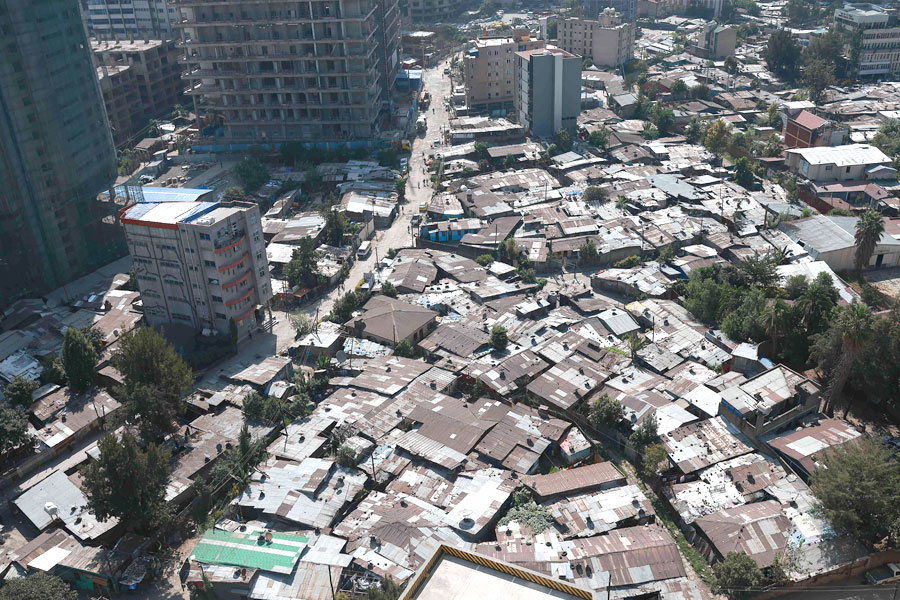
Agenda | Jun 15,2024
Dec 19 , 2018
By MIHRET G. KIRISTOS ( FORTUNE STAFF WRITERS )
A bill, which has stringent rules on the use, sale, advertisement and retail of tobacco and alcohol, has reached the final stages of legislation in parliament.
Drafted by a joint force of the Food & Drug Administration Authority, Ministry of Health, World Bank and World Health Organisation, the bill was submitted to parliament last week.
The proclamation was drafted in a bid to save the public from the health hazards of unsafe food, medicine and substance use, packaging and distribution, as well as to install a regulatory framework for the ever-expanding industry, according to Dagim Alemayehu, legal adviser for the Authority.
The proclamation, which was drafted over the last three years, brought new regulations to the distribution, use and advertising of alcoholic drinks, tobacco and drugs.
The proclamation states that tobacco products are to have rotating warning messages to be displayed on no less than 70pc of the packaging. It also prohibits any form of tobacco advertising on the packages.
The proclamation prohibits individuals from selling tobacco products to underage people, and it can only be sold in packages.
“The aim of the proclamation is to discourage the industry and protect public health,” said Dagim.
A report released two years ago by Global Adults Tobacco Survey states that 3.4 million adults currently use tobacco in Ethiopia.
Beside the new rules on tobacco, the proclamation brought a new standards on labelling alcoholic drinks.
Alcoholic drinks will be required to post warnings stating that consuming alcohol has health hazards, once the proclamation is ratified. The proclamation also restricts advertisement of alcoholic drinks by time and place.
Any drinks with more than 10pc of alcoholic content are prohibited from promoting the product in public spaces, events and holidays, can advertise from late at night until the morning.
“The purpose of these articles is to protect consumers from alcoholic drinks,” Dagim told Fortune.
Manufacturers of beer argue that these proclamations affect their business and the chain.
“These proclamations affect the beer market, which indirectly affects the farmers, suppliers and distributors,” said Yayehyirad Abate, corporate relations director of Meta Abo Breweries, a beer manufacturer established in 1967 and now owned by Diageo. Diageo operates in 180 markets globally and produces 1.7 million hectolitres of beer per year in Ethiopia.
“We actually don't advertise before 2pm,” argues Yayehyirad. “We also give awareness on the harmfulness of alcoholic beverages.”
The company has participated in a public discussion, regarding the amendment of the proclamation, for the last two years.
“We weren't consulted on specific matters,” Yayehyirad told Fortune.
One of the late entrants to the beer market, Habesha Breweries also was part of the discussion but was never called upon for comment on the draft.
“We were not in the process of drafting the proclamation,” Amerti Lemma, corporate communications manager for Habesha, told Fortune.
Average yearly alcohol consumption in Ethiopia is between 2.5lt to 4.9lt of pure alcohol a person a year, according to WHO’s Global Status Report on Alcohol and Health 2018.
Experts welcome the amended proclamation and argue that it safeguards the public health.
“Tobacco industry players might argue the tight regulation pushes the growth for illegal trading,” says Dereje Shimelis (JD), a health law expert with a decade of experience. “Yet the only loophole that creates illegal trading is lack of proper implementation of the proclamation.”
The expert disagrees with the proclamations effect on the business of alcoholic drinks.
“The main aim of this proclamation is not to discourage the industry,” Dereje said. “The companies can still advertise on non-electronic media.”
Ethiopia has one tobacco factory, which was founded in 1941 and is now owned by Japanese tobacco giant Japan Tobacco International.
The beer industry has grown over the years with different brands, yet the major owners are Heineken, Diageo, BGI and Dashen breweries.
Tabled a week ago, the draft proclamation was approved by the Council of Ministers last month, and was deliberated and discussed by members of parliament. After the discussion, it was sent to the Women, Youth & Social Affairs Standing Committee on Tuesday, December 11, 2018
The legislation may take up to three months to be finalised, according to Dagim.
PUBLISHED ON
Dec 19,2018 [ VOL
19 , NO
973]

Agenda | Jun 15,2024

View From Arada | Dec 29,2018

Commentaries | Apr 10,2021

Radar | Jul 13,2020

Radar | Mar 14,2020

Radar | Nov 19,2022

Fortune News | Nov 29,2020

My Opinion | Apr 15,2023

Sunday with Eden | Dec 21,2019

Commentaries | Nov 21,2018

Jul 13 , 2024 . By AKSAH ITALO
Investors who rely on tractors, trucks, and field vehicles for commuting, transportin...

Jul 13 , 2024 . By MUNIR SHEMSU
The cracks in Ethiopia's higher education system were laid bare during a synthesis re...

Jul 13 , 2024 . By AKSAH ITALO
Construction authorities have unveiled a price adjustment implementation manual for s...

Jul 13 , 2024
The banking industry is experiencing a transformative period under the oversight of N...

Jul 20 , 2024
In a volatile economic environment, sudden policy reversals leave businesses reeling...

Jul 13 , 2024
Policymakers are walking a tightrope, struggling to generate growth and create millio...

Jul 7 , 2024
The federal budget has crossed a symbolic threshold, approaching the one trillion Bir...

Jun 29 , 2024
In a spirited bid for autonomy, the National Bank of Ethiopia (NBE), under its younge...